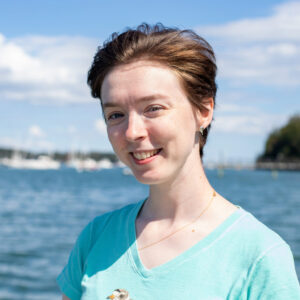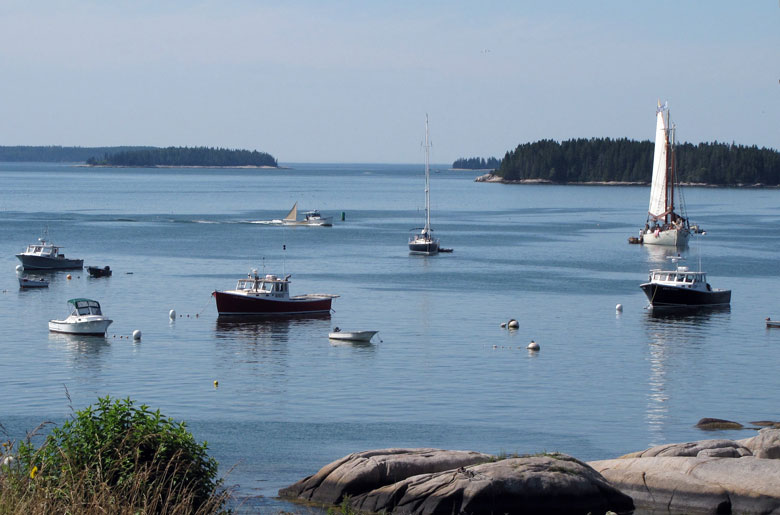Reflections is written by Island Institute Fellows, recent college grads who do community service work on Maine islands and in coastal communities through the Island Institute, publisher of The Working Waterfront.
One blustery March afternoon, I decided to clear my mind by searching for sea glass on Deer Isle’s Causeway Beach. The wind nipped at any exposed skin and rippled across the receding tide.
Walking along the wrack line searching for beach gems, I stumbled across a sobering sight: a used needle lying in a pile of algae. My heart sank a little bit as I pondered where it came from and if I should try to dispose of it (don’t dispose of used needles without proper training!).
Thoughts of the island families affected by addiction and substance abuse brought me back to my students at my Island Institute Fellowship placement in the afterschool program. I wondered how many deal with family issues like this that I’m unaware of.
As a writer, I felt a poem bubble to the surface that described exactly how I felt, which I titled “Causeway Beach:”
I went to the beach to clear my crowded crown
It was cold and clear, devoid of other people
I found a used needle nestled next to some lobstering rope
in a cradle of bladderwrack
The thoughts bubbled back through the brine to the surface
How had the needle arrived, by man or by sea?
It didn’t matter, the harm was already complete
A few weeks later, I received an ominous email from the superintendent about a threat of violence at the high school down the driveway from the elementary school. Not a lot of information was available at the time, but I was informed that it was being investigated as a hate crime by the Maine Attorney General.
It was a Sunday night and scenarios spun through my head about what the next day at afterschool might bring. I had no idea what to think—it’s not like I’d had to seriously consider what would happen if a potentially dangerous individual showed up to school.
It was a Sunday night and scenarios spun through my head about what the next day at afterschool might bring.
The feeling of not knowing if my disabled body would be enough to shield my students from violence kept me up that night. How could something like this happen in a small island community?
This feeling is something that every educator in America, sadly, is familiar with, but it doesn’t have to be this way.
Thankfully, the situation on the island has been resolved, and it highlighted the need for preventative measures and programs to keep kids safe and find a path free from violence and addiction.

Some of the kids in our program don’t have a stable home life or the certainty of knowing where their next meal is coming from. Studies show that afterschool programs provide a safe and enriching environment for kids, offering support for social, emotional, cognitive, and academic development, and reducing risky behaviors like smoking and drug use, and increase overall physical wellness.
The Mariners Soar! Afterschool Program ensures that every kid has access to a healthy meal and fun, safe activities after school lets out for the day. It supports working families by providing care between the end of school and the end of the typical workday.
The community rallies behind the afterschool program. Community volunteers and partners, generous donations, and grants from the state have supported it since its inception in 2018.
Serving kids in grades three and up creates a unique environment where those from different grades can interact with each other and build connections that they might not get to otherwise during the school day. Having a trusted, caring adult who consistently shows up has lasting positive effects on kids’ lives. Sometimes I struggle to meet the kids where they’re at each day–but it is always worth it. The afterschool program is always free to enroll in–and the lights are always on after school.
If you or a loved one is struggling with opiate addiction on Deer Isle, reach out to Opiate-Free Island Partnership at (207) 367-5850 or ofip.dis@gmail.com.
Katie Liberman works with afterschool and summer programs on Deer Isle. She has an undergraduate and master’s degrees in marine biology from the School of Marine Sciences at the University of Maine.





